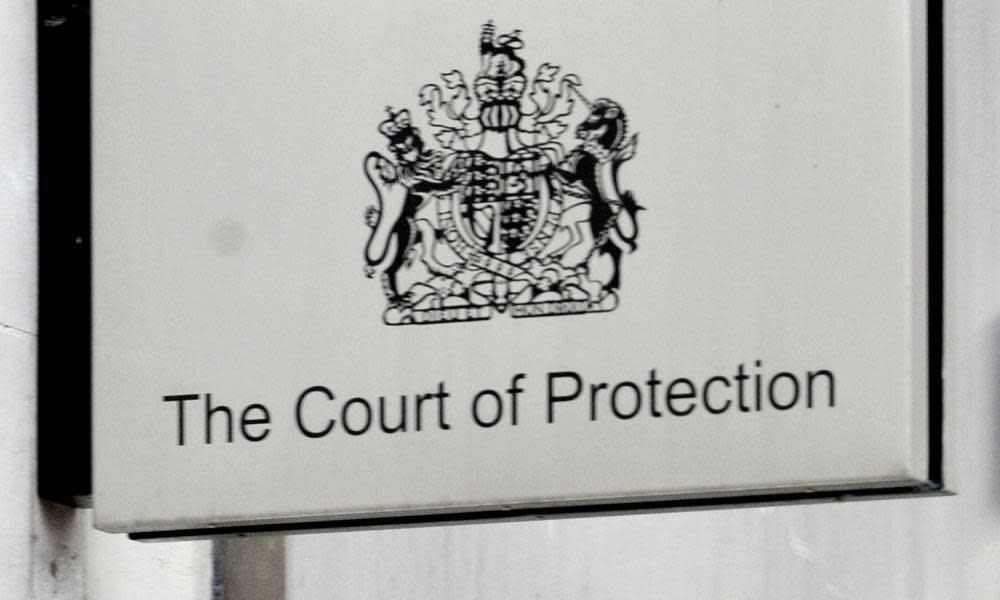Daughter of brain-damaged woman tells court 'Mum's gone'

The daughter of a brain-damaged woman being cared for on a hospital drip wept as she told a court: “My mum’s gone.”
She went on: “She’s physically there in the bed, but it’s not my mum. Visiting her is very hard because it’s a sharp reminder of what we’ve all lost and what my mum has lost. The essence of her has gone and I miss her.”
Mrs P, 72, who cannot be identified for legal reasons, has spent the past 10 months living in a minimally conscious state in a high-dependency ward. Her two daughters and long-term partner want her taken off the nasogastric tube and allowed to receive palliative care in a hospice. But the woman’s three sisters have sided with an NHS trust in arguing that her current medical regime should continue.
The family rift is now at the centre of a legal wrangle in front of a judge at the court of protection.
Mr Justice Hayden has already been told of an email written three and a half years ago, in which Mrs P asked her daughter, Ms A, to “have the pillow” ready should she ever suffer an illness similar to the one that claimed her father’s life.
On Tuesday Ms A frequently wiped away tears as she recalled her mother being “a force to be reckoned with” before she suffered a fall last November.
“She wasn’t frightened to stand up and say what she thought. She wasn’t anything like a little old lady. She wasn’t a ‘sit there in front of the TV sipping tea’ sort of woman. She was a ‘knock on the council offices’ door’ type of person.”
Mrs P had been making plans for last Christmas Day at the time of her fall. Afterwards she began to suffer from headaches. Within a month a CT scan revealed an aneurysm and she then lapsed into the minimally conscious state in which she remains. Doctors have given her a life expectancy of about five years.
Ms A said she did not think her mother “got anything out of” her visits, and over the months she herself had come to feel “quite intimidated” by staff on the ward.
Ms A revealed that her mother had spent three days watching her husband die in 1993. He had taken the decision to have no further medical intervention and she complied with that.
“My mum was 100% behind my dad’s decision. She was full of admiration for his courage in doing what he did. She sat with him for three days while he died. With that history, I don’t think we could see more clearly what to do now.
“We’ve heard a lot about the patient, but that isn’t my mum. It’s really important that my mum is brought into these proceedings as much as possible.”
One of Mrs P’s sisters said she believed the pensioner would have wanted “to have every possible care – high quality care – and choices”.
She added: “She would have wanted everything to be done for her at the appropriate time. I don’t understand why it wasn’t.
“I believe that being surrounded by talking books or music is essential and I don’t understand why that wasn’t available. When I’ve seen her I feel I’ve communicated. I talked to her about things. We had to work hard to bring her consciousness up. It was shaking her and really speaking to her. On one occasion I said, ‘Come on, kid – don’t give up.’ With her good hand she picked up the corner of the sheet and wiped (a tear from) my eye.”
She said of the decision-making process: “Unless you’re going into the realms of emotional entrapment, I don’t think you can answer for anyone else without written documentation.”
Professor Derek Wade, the consultant in neurological rehabilitation instructed by Ms A, said he doubted the NHS trust’s ability to find a suitable nursing home for the pensioner.
Nursing homes were “commercially orientated” and large, he said, and it was likely that any intended structure was likely to be disrupted by staff having to deal with severe care needs.
Mr Justice Hayden is considering an application by an NHS foundation trust, which cannot be identified for legal reasons, for declarations and orders permitting the withdrawal of clinically assisted nutrition and hydration.
The case continues.

 Yahoo News
Yahoo News 
